Revenue Analytics & Jonas Chorum Launch Two-Way Integration for Hotels
Revenue Analytics and Jonas Chorum announce a two-way integration to automate hotel pricing, sync real-time data, and boost RevPAR with AI-powered insights.
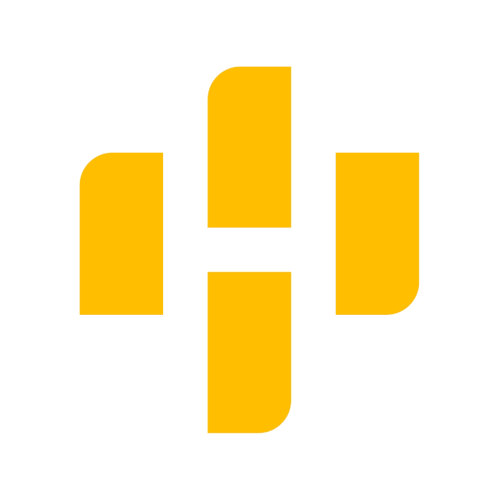 Written by
HotelMinder
in
Property Management System
Written by
HotelMinder
in
Property Management System Most next-gen hotel property management systems combine multiple functionalities into a single software. Depending on the service provider, the features, functions, and modules can vary significantly.
It's worth mentioning that some vendors sell separate modules, which can be integrated on a need-to-have basis. In addition to this, most software come with the possibility for third-party solutions, offering features beyond the parent modules available in the platform.
While looking for a Property Management System, it's important to understand the difference between functionalities and features.
Don't get us wrong! It's important to purchase a PMS loaded with features. However, it's also important to know that you'll end up using only some of these. Think about a compass on a smartphone. When was the last time you used it? Exactly! It's a cool feature to have on your phone, but it doesn't offer much utility in the real world. Functionalities are what you need to focus on to choose a reliable hotel PMS.
Here's a look at some important things you should consider while choosing a hotel Property Management System.
This is definitely more a feature than a functionality, but an intuitive interface goes a long way!
With an intuitive interface, it becomes easier to train your employees. At the same time, it helps reduce the likelihood of errors. A simple and clean interface streamlines operations, enables faster check-ins, and can be easily operated from a mobile app or device.
The best PMS solutions today offer self-service and remote check-in functionalities to hotel guests through their mobile device, the web, or a kiosk installed at the hotel.
It’s immensely valuable to have a centralized dashboard that can be adjusted to reflect an individual property’s most important metrics.
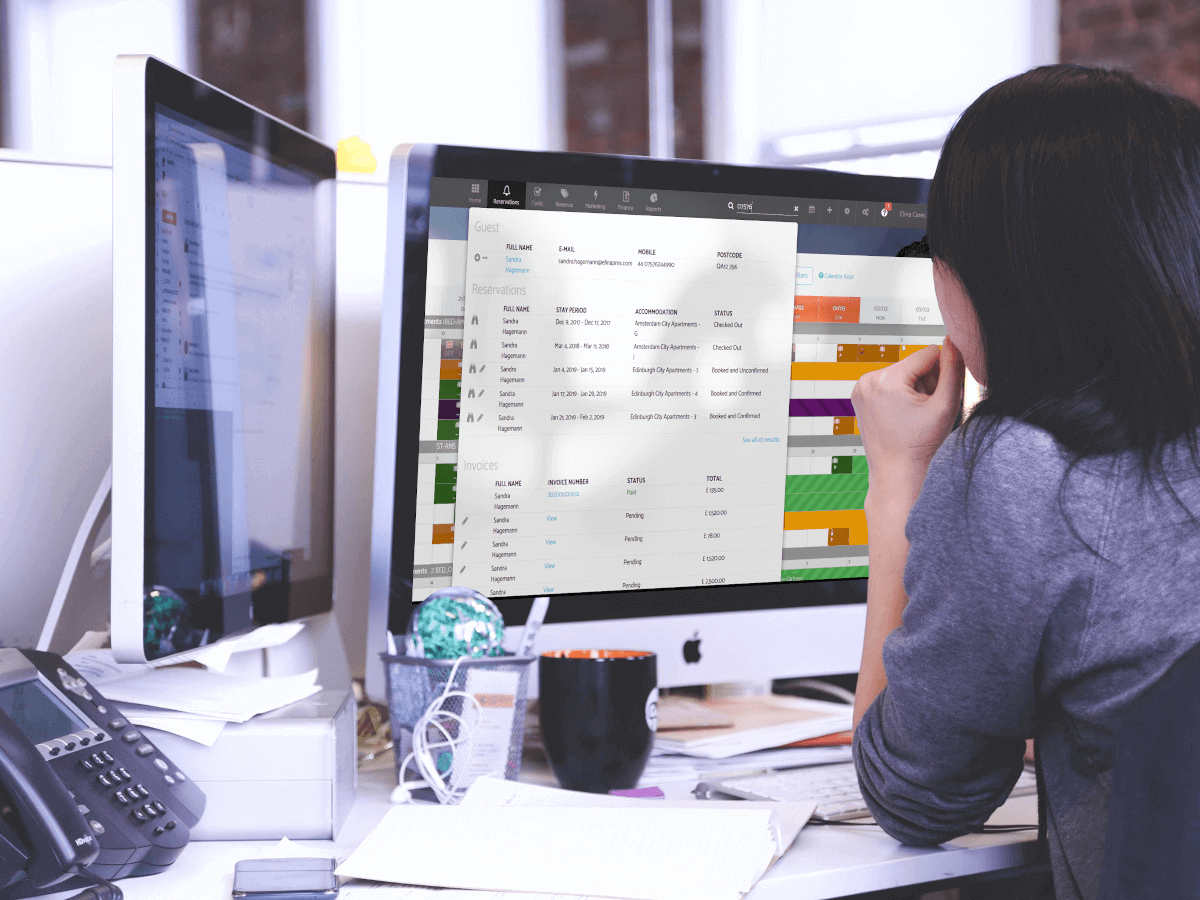
A hotel reservation system records all inventory data, guest and booking information, and other details to be made easily accessible to the front desk. Using a centralized dashboard, the staff members can view and update bookings, payments, room reservation status, etc.
Key functions of the front desk module include:
The software checks room status and availability, displays free rooms across multiple channels, and keeps a check on the booking engine's data. This module also monitors group reservations and double bookings. In addition to this, it schedules bookings, displays details of upcoming and current bookings, and allows the front desk staff to modify guest reservations.
The module can be used to make e-payments with bank cards. It's also useful for identification of categories and types of payments in compliance with global and local regulatory standards.
The front desk module allows the platform to send confirmation emails to guests after the booking is complete. This ensures seamless guest communication, which helps provide a better guest experience.
In some PMS, this module allows guests to book activities at the time of booking a room.
For larger hotels, this module is often used for group reservations, allowing the front desk staff to make easy bookings, integrate room list, manage group account invoicing, handle electronic key cards, process payments, and perform shift or night audits.
For back office management team, and depending on the size of your hotel and the complexity of your needs, you might want to use functions like:
In addition, you need to make sure you're following local government regulations. Complying with local tax reporting requirements and regulations is a must!
In recent times, data breaches have been making daily headlines. Poor security practices of vendors can lead to a lot of issues. It's necessary to look for strong data security and access control permission features in the PMS.
With HotelMinder, match with vetted hotel experts to solve your operational problems.

When it comes to hotel operations, a property management software is the core. Therefore, the software and any third-party integrations should be completely secure. You should consider -
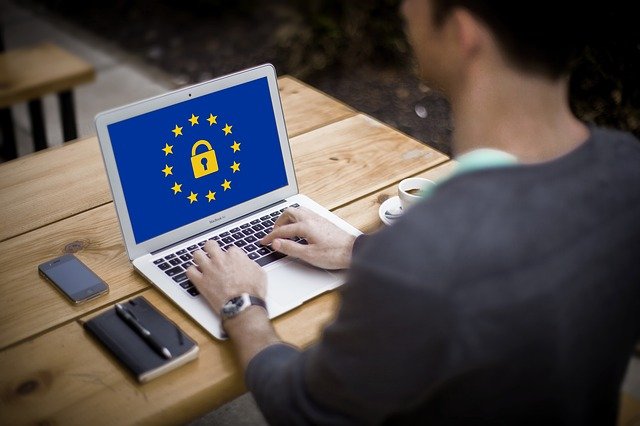
A good PMS offers robust user access controls. Thus, users are able to easily configure several settings.
In order to maintain safer payment processing and ensure guest privacy, access to sensitive information should be restricted. There should also be an audit trail, allowing you to track potential unauthorized access.
The housekeeping module connects the front office to the housekeeping staff. With this module, you can automate administrative tasks to give housekeepers more time to concentrate on getting rooms prepared for guests.
A modern-day housekeeping module indicates which rooms are clean, out of order, dirty, or inspected.
The front-office manager can make a list of tasks to assign, and housekeepers can update the status of each room.
The PMS mobile application for housekeeping staff (or web access to a portal) allows housekeeping staff to organize their work and communicate to the front desk staff in real-time when a room is cleaned up and ready to take in a guest.
The housekeeping management functionality of a PMS keeps bigger properties operating at maximum efficiency as it allows for faster room turnover. Advanced systems can also automatically generate a schedule for maximum efficiency of the housekeeping department.
It's worth noting that the housekeeping functionality includes maid assignment, management of room status, floor or block allocation, etc
A reliable hotel property management system can greatly benefit the maintenance department. It can automated planned maintenance of the property. Managing maintenance through a PMS allows you to record hotel repairs and disruptions, thereby eliminating issues for the staff. However, this is often only needed in larger hotels.
An effective way of using a PMS for maintenance management is by utilizing a simple ticketing system. It should allow everyone in the team to access task lists, work instructions, and other details from a mobile or laptop. With a ticketing functionality in place, every member of the staff knows exactly what to do when, where, and how. This saves the property's time and money in the process.
It's important for property owners to collect and organize guest data to stay in touch with current and past customers post check-out.
Most PMS systems will offer some kind of CRM functionalities. This helps seamlessly store guest data and use an easily accessible database.
For bigger hotels handling a huge amount of guest data, the use of a CRM module (either third-party or within the PMS) that integrates with the front desk and reservation system to collect and manage all guest information is a must.
With the CRM module, hotel owners can personalize the guest experience with loyalty and membership programs. These are quite important for resorts and hotel chains.
Some PMS solutions can also help measure guest experience, organize promotions and marketing efforts, and offer better pre- and post-stay services.
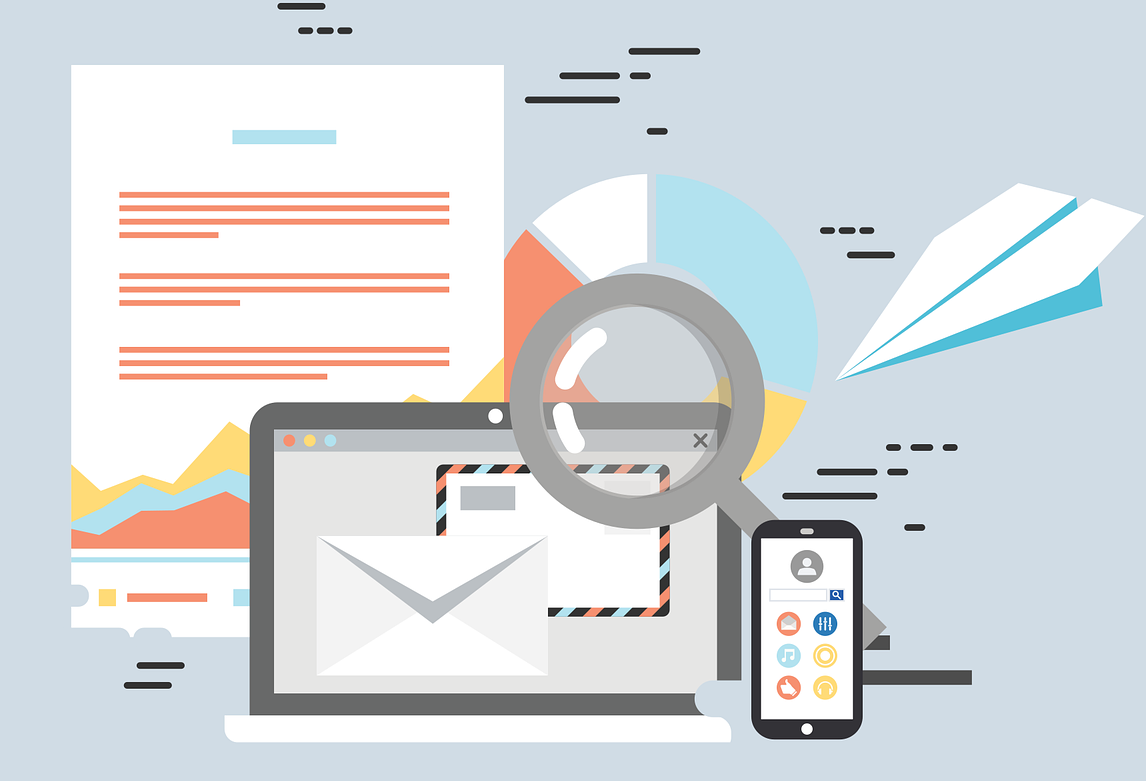
With a modern hotel property management system, it becomes easier to handle financial administration, making it hassle-free for the staff to manage everything related to payments.
Finances functionality requirements really depend on the size of the hotel and the regulations in place in the country it operates. Small properties will typically only require basic invoicing functionalities and reporting, while bigger hotels and chains will need to cover many additional needs through functionalities such as:
Billing, cashiering, invoicing, and currency exchange can be time-consuming and complicated. While choosing a PMS, look for the below functionalities to make your staff's lives easier.
For a hotel's business growth, it's essential to keep track of reservations, revenue, room inventory, occupancy, etc. With a good PMS, you're able to generate consistent, accurate, and timely reports specific to your needs and requirements. This helps get access to the right data to make informed decisions.
Here are the most essential reports you should expect from your PMS:
Depending on the software and the size of your property, a PMS can be used to generate night audit reports, departure/arrival reports, tax and room reports, housekeeping reports, shift audit reports, etc. The PMS should also be able to convert these reports to multiple formats, including XLSX and PDF.
For a larger hotel, the reporting needs can be quite complex. Such hotels need comprehensive reporting and analytics functionalities in the PMS to meet their demands. They should be looking for -
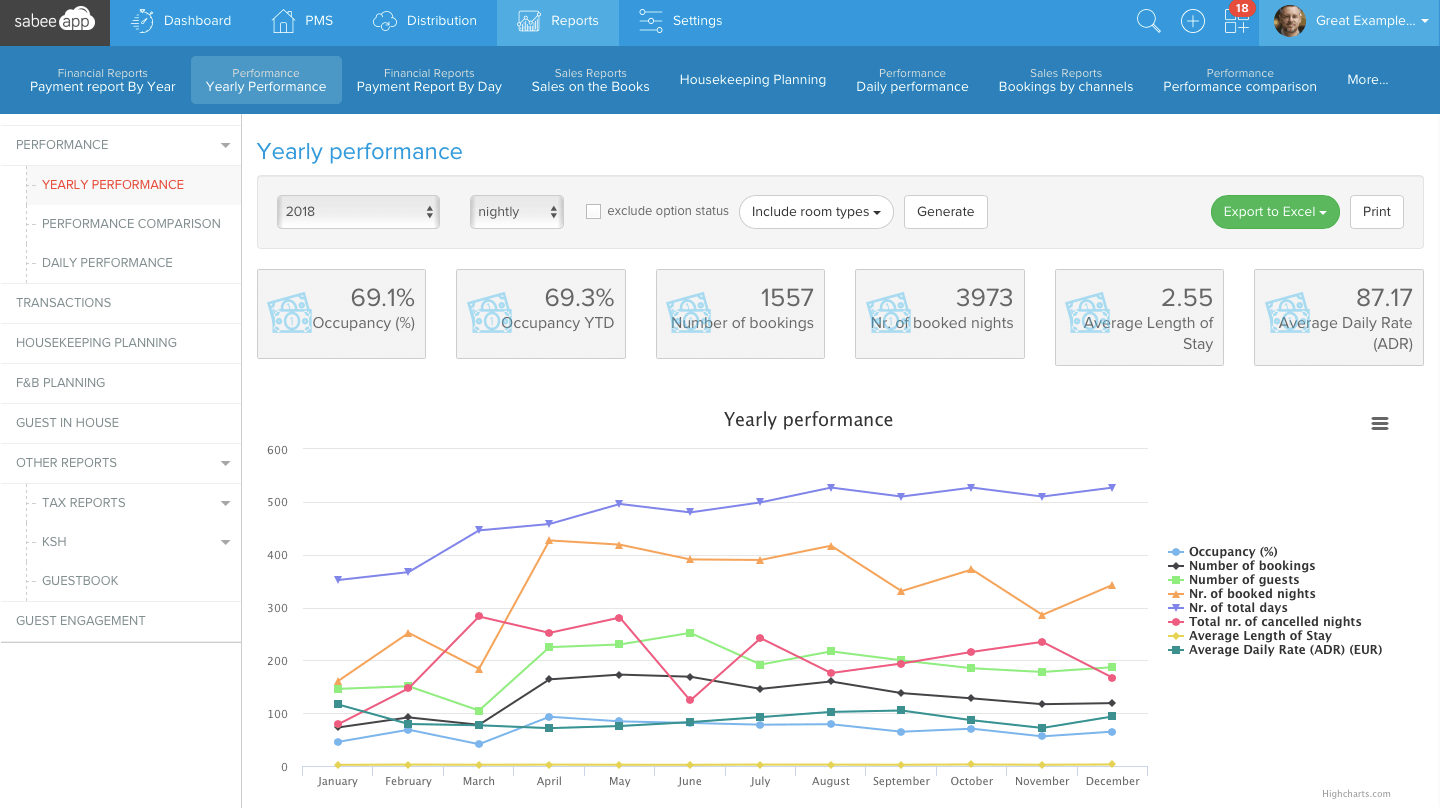
While mid-size and larger hotels will likely benefit from the use of a third-party Revenue Management System integrated to the PMS, there's still a lot the PMS has to offer to the Revenue Management Team. You're looking for:
The PMS is the core of the hotel. Depending on the specifics of the hotel and its size, you will need additional modules or integration with third-party systems, such as an integrated Channel Manager or possible integration to an existing Channel Manager to interface with OTA portals like Booking.com, Expedia, Airbnb, etc.
You will also need a booking engine to be integrated into your website (or the possibility to connect to a good third-party system) to promote direct bookings and avoid commissions from the Channel Manager or distributors.
An interface with a Payment Gateway integration for online bookings, pre-authorization (including without the presence of the guest, as well as for on-site payments) will also help. Bonus points if you can fully-automate payments and pre-authorization depending on cancellation policy.
For the full list of recommended and potential integrations, see: What Integrations Should a Property Management System Offer?
We help busy hoteliers find, setup and run the right applications and services to manage business according to their needs, budget, technical and human resources requirements.
HotelMinder brings value to hoteliers through a Knowledge Hub, a Technology Marketplace and one-to-one hotel management consulting services. With our 50+ years of combined expertise, we provide actionable solutions to critical business challenges, while establishing a relationship based on trust, engagement and mutual benefit. We help hotels meet and exceed their business goals through an in-depth analysis of consumer insights, business requirements and opportunities.
We are excited to announce the launch of Lobby, a brand-new network of hospitality consultants, which connects hospitality industry decision-makers with carefully vetted hospitality experts to deliver faster, more effective, actionable solutions to hoteliers’ top problems – launched to the public in October 2025.
If you are a hotelier who needs support, information or advice, or a hospitality industry expert who wants to help hoteliers achieve their business goals, you can enter the Lobby for free.
Your trust is our top priority. Whether you're choosing technology or connecting with an expert, we're committed to transparency. Here’s how we ensure you get unbiased, reliable guidance. Learn more about our promise.
Browse Knowledge Hub
Check out the latest insights, news and articles from the HotelMinder team, industry leading technology vendors and hospitality consultants.
Revenue Analytics and Jonas Chorum announce a two-way integration to automate hotel pricing, sync real-time data, and boost RevPAR with AI-powered insights.
Stop guessing your demand. Learn the simple 7-step guide to hotel forecasting to build reliable budgets, optimize your pricing, and take control of your revenue.
A hotel consultant debunks 3 common hotel technology myths. Learn why new tech isn't always the answer & how to truly optimize hotel operations for profit.
Access world-class hospitality expertise with Lobby. Our on-demand hotelier expert network offers proven solutions for revenue management, marketing, and technology challenges. Join free.
Discover more insightful articles in our Knowledge Hub and Partners Hub.
Sign up for expert insights, exclusive offers, and real solutions made for hoteliers like you.